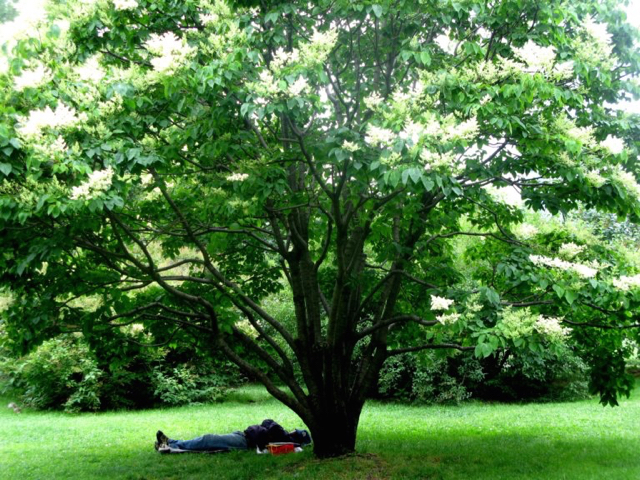A Poetic Endnote on Sleep

I know that some people think me a little compulsive for always glancing through the endnotes of books by authors I respect. Endnotes aren’t for reading, I’ve been told, and there is truth in that. But over the years I’ve come across some good things in endnotes—books that should be read, authors I’ve mistakenly ignored, little asides that didn’t make it into the text of the book but that are worth reading. This time, I happened upon a poem.
“I don’t like the man who doesn’t sleep,” says God. / “Sleep is the friend of man. / Sleep is the friend of God. / Sleep is perhaps the most beautiful thing I have created, / and I myself rested on the seventh day…
The poem, it turns out, was written by Charles Peguy (1873-1914), a French writer who if I had ever heard of before I don’t remember. Shot and killed in the opening days of World War 1, a monument was erected near the spot where he died. Somehow his poem caught the attention of Eugene Peterson, who included it as endnote #4 to Chapter 5 of his book, Answering God.<
“He whose heart is pure, sleeps, / And he who sleeps has a pure heart. / That is the great secret of being as indefatigable as a child, / of having that strength in legs that a child has. / Those new legs, those new souls, / And to begin afresh every morning, ever new, / Like young hope, new hope. / But they tell me that there are men / Who work well and sleep badly. / Who don’t sleep. What a lack of confidence in me. / I pity them. I have it against them…
Peguy understood that to think of sleep as a biological function, a physiological respite to prepare us for the next day’s labor is to be blind to the true beauty of reality. In sleep we place ourselves in the hands of God and demonstrate what we mean when we claim to walk by faith and not by sight. The Hebraic perception of day and night sees each new day beginning at sundown. That’s why the creation narrative has it that “evening and morning, the first day,” and on through the week. We begin each new day not with work, but with sleep, so all the world can see that from the perspective of biblical faith it is God’s work and not ours that is definitive, primary and essential.
“Like the child who innocently lies in his mother’s arms, thus they do not lie / Innocently in the arms of my Providence. / They have the courage to work. / They haven’t enough virtue to be idle.
When I was younger someone told me they thought I was addicted to my own adrenaline. It was a highly offensive notion. It was also true.
“To stretch out. To rest. To sleep. / Poor people, they don’t know what is good. / They look after their business very well during the day. / But they haven’t enough confidence in me to let me look after it during the night. / As if I wasn’t capable of looking after it during one night. / He who doesn’t sleep is unfaithful to Hope. / And it is the greatest infidelity.”
If the final line of Peguy’s poem seems untrue, or a bit of an exaggeration, or perhaps an overstatement for the sake of poetic effect, one thing is certain: we do not know much of God, or faith, or sleep.

